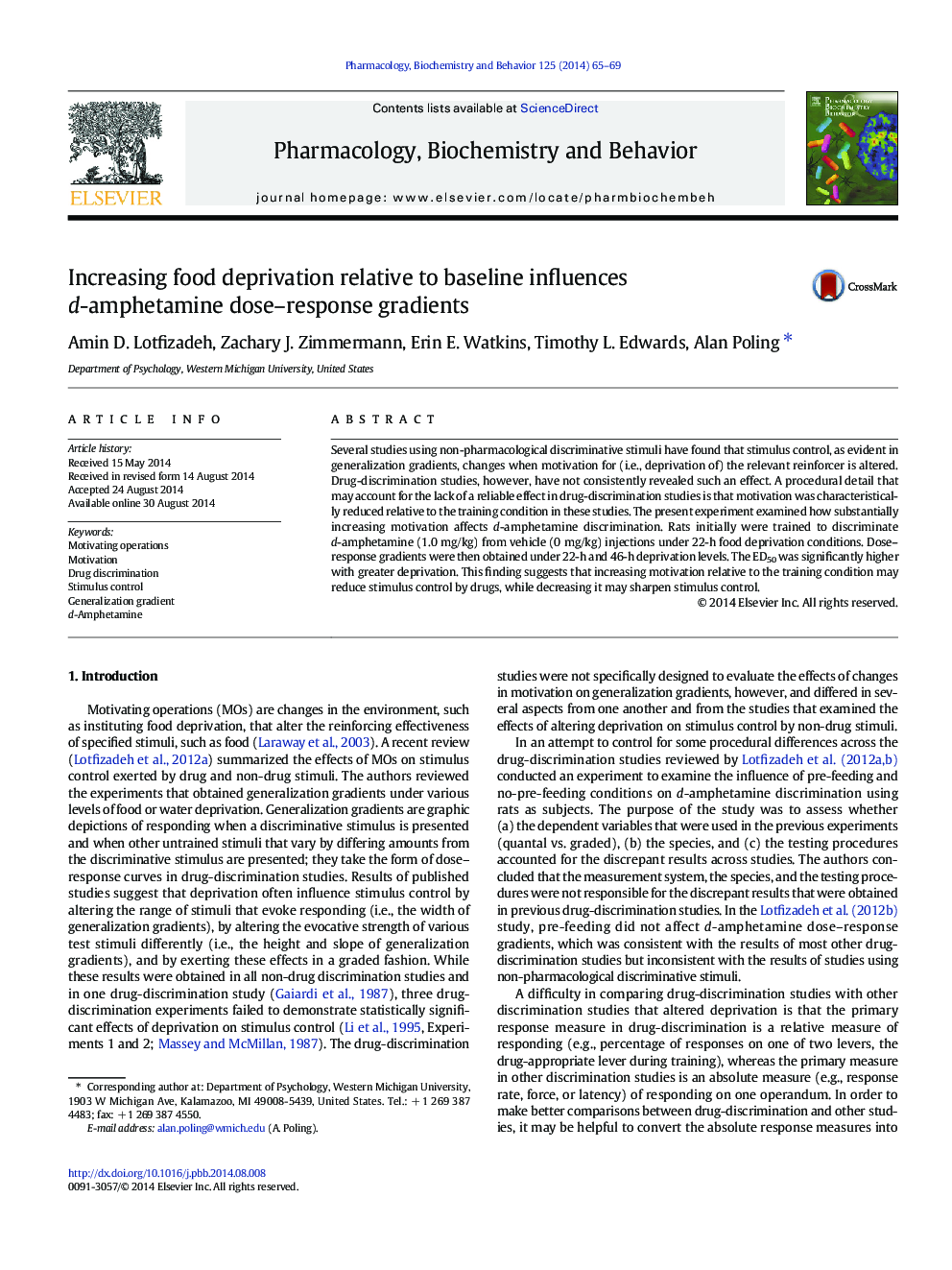| Article ID | Journal | Published Year | Pages | File Type |
|---|---|---|---|---|
| 2012972 | Pharmacology Biochemistry and Behavior | 2014 | 5 Pages |
•Rats were trained to discriminate d-amphetamine injections from saline injections.•Training was conducted under 22-h food deprivation conditions.•Dose–response gradients were obtained under 22 and 46 h deprivation.•Increasing deprivation relative to training influenced dose–response gradients.•The ED50 values were higher under higher deprivation conditions.
Several studies using non-pharmacological discriminative stimuli have found that stimulus control, as evident in generalization gradients, changes when motivation for (i.e., deprivation of) the relevant reinforcer is altered. Drug-discrimination studies, however, have not consistently revealed such an effect. A procedural detail that may account for the lack of a reliable effect in drug-discrimination studies is that motivation was characteristically reduced relative to the training condition in these studies. The present experiment examined how substantially increasing motivation affects d-amphetamine discrimination. Rats initially were trained to discriminate d-amphetamine (1.0 mg/kg) from vehicle (0 mg/kg) injections under 22-h food deprivation conditions. Dose–response gradients were then obtained under 22-h and 46-h deprivation levels. The ED50 was significantly higher with greater deprivation. This finding suggests that increasing motivation relative to the training condition may reduce stimulus control by drugs, while decreasing it may sharpen stimulus control.
